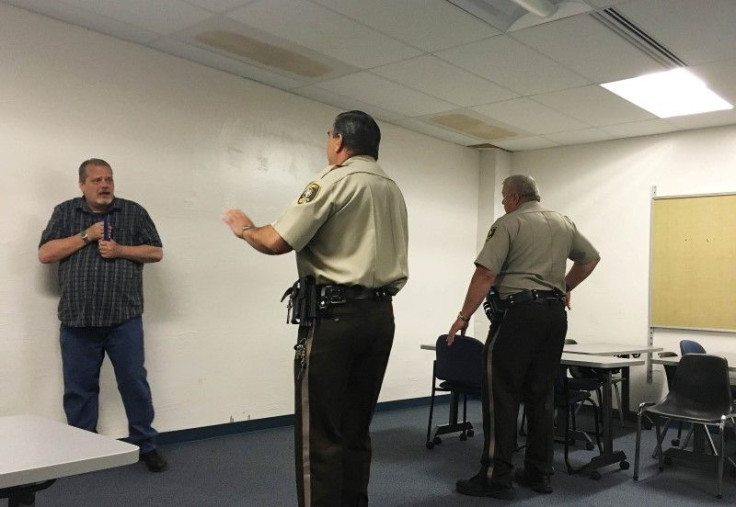Illinois Deputies Learn How To Deal With Mentally Ill

RIVER GROVE, Ill. (Reuters) - As law enforcement officers across the United States feel the heat about excessive use of force, dealing with the mentally ill was the training focus for Cook County sheriff's deputies this week.
Participants grappled with intense scenarios, such as a man who believes his wife and brother are having an affair, and who refuses to take his medication and then holds a knife to his own throat. The week-long training took place at Triton College near Chicago.
"Someone who is suffering from mental illness is no different than that person who is having that asthma attack or the person who is having that heart attack," said Bob Maas, a crisis intervention trainer and 16-year sheriff's deputy. "The only difference is that their illness is in their head, so why would you want to arrest somebody?"
However, subjecting the mentally ill to arrest and use of excessive force is a frequent criticism leveled at many law enforcement agencies nationwide. In some cases, such incidents have resulted in high-profile deaths that leave everyone demanding more training for law enforcement.
The nonprofit Treatment Advocacy Center said in a 2015 report that Americans with mental illness are 16 times more likely to be killed by police than other civilians. The advocacy group said at least a quarter of the hundreds of Americans killed by police annually are severely mentally ill.
In Chicago last year, the fatal shooting by city police of 19-year-old Quintonio LeGrier, who suffered from mental issues according to relatives, sparked a national discussion about officer training for dealing with the mentally ill.
LeGrier had called police three times asking for help before he was shot, but the dispatcher hung up on him when he would not give his name. As a result of the shooting death of LeGrier, Chicago in January announced reforms, including new training, in dealing with the mentally ill.
This week, Cook County jail deputies and correctional officers received training - using role playing and plastic blue guns - on how to deal with people who are having a severe episode and are potentially violent. An estimated one-third of the jail's inmates have some form of mental illnesses.
"The reality is, Cook County jail is now a mental health hospital and sheriff's police officers are now pseudo-psychologists, pseudo-social workers, and that's just the reality that was handed to us," Cook County sheriff's spokesman Ben Breit said.
(Editing by Ben Klayman and Matthew Lewis)



























